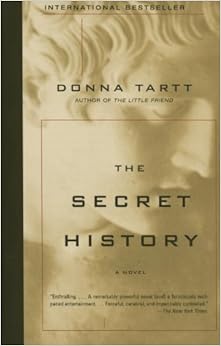1. The writer's income
Except for bestsellers, books do not make a lot of money for their authors. Therefore, for full-time writers struggling to support their families, the more books they can write, the better. Even bestselling authors strive to maximize their income by writing at least one book a year. Some writers produce new books faster than their publishers are willing publish them. Publishers usually don't want to put out a new book in hardback before the earlier book has been reprinted in paperback.. In that case, authors may use pen names to sell books to other publishers. Romance writer Kathleen Lindsay used at least 11 pen names. John Creasey wrote under 28 names other than his own. French mystery writer Georges Simenon wrote under a dozen different names. Such writers as Donald E. Westlake, Agatha Cristie and even Joyce Carol Oates have also used pseudonyms. Getting more books published is hardly the only reason for using a pen name, but it makes sense for some.
2. Long books
Some writers seem incapable of writing short books. I am thinking of Thomas Wolfe, Pat Conroy, Edward Rutherfurd and Neal Stephenson, among others. Their mammoth books may scare away some readers, but others are attracted to books with some heft to them. Why take two or three novels with you on your winter cruise when you could just take that 920-page Ken Follett novel I recently finished? But it has often been argued that Wolfe, for one, would have benefited from more ruthless editing. Writing long can indicate a lack of skill and discipline. Graham Greene, one of our better writers, says his publishers complained because his books were too short.
You might think an author could write two 400-page books instead of one 800-pager and thus double sales and royalties, but it is not that simple. Once you have developed a plot, created characters and done whatever research is necessary, writing a long book is much easier than starting over on a new book.
3. The number of books
4. Fans
I have been a Westlake fan for 50 years and read one or two of his books a year, yet there are still several of his books I have yet to read. I find this a trifle frustrating, especially since there are so many other writers I love who write books faster than I can can read them. Yet this wealth of unread books also seems like something of a luxury. It means that, while I may never catch up on my reading, I also will never run out of books I want to read.
5. Literary quality
Most of the writers I have mentioned so far are not literary greats, although you could make a case for Wolfe, Oates, Conroy and Nash. When you are writing literature, as opposed to just telling a good story, it might be best to write deliberately and to re-write entire passages, or even entire books, on occasion. Some masterpieces have been written quickly, but usually they take time. Donna Tartt's first novel, The Secret History, was published in 1992, and she has written just two novels since then. Is that why her books are so good, or is she just a slow writer? Joyce Carol Oates is someone who might be more highly regarded by literary critics if she wrote fewer books, but then maybe not.
In the end, writers write as they write, fast or slow, long or short, good or bad. Readers, both literary critics and the rest of us, just have to take them as they are and render our verdicts as they be.


No comments:
Post a Comment